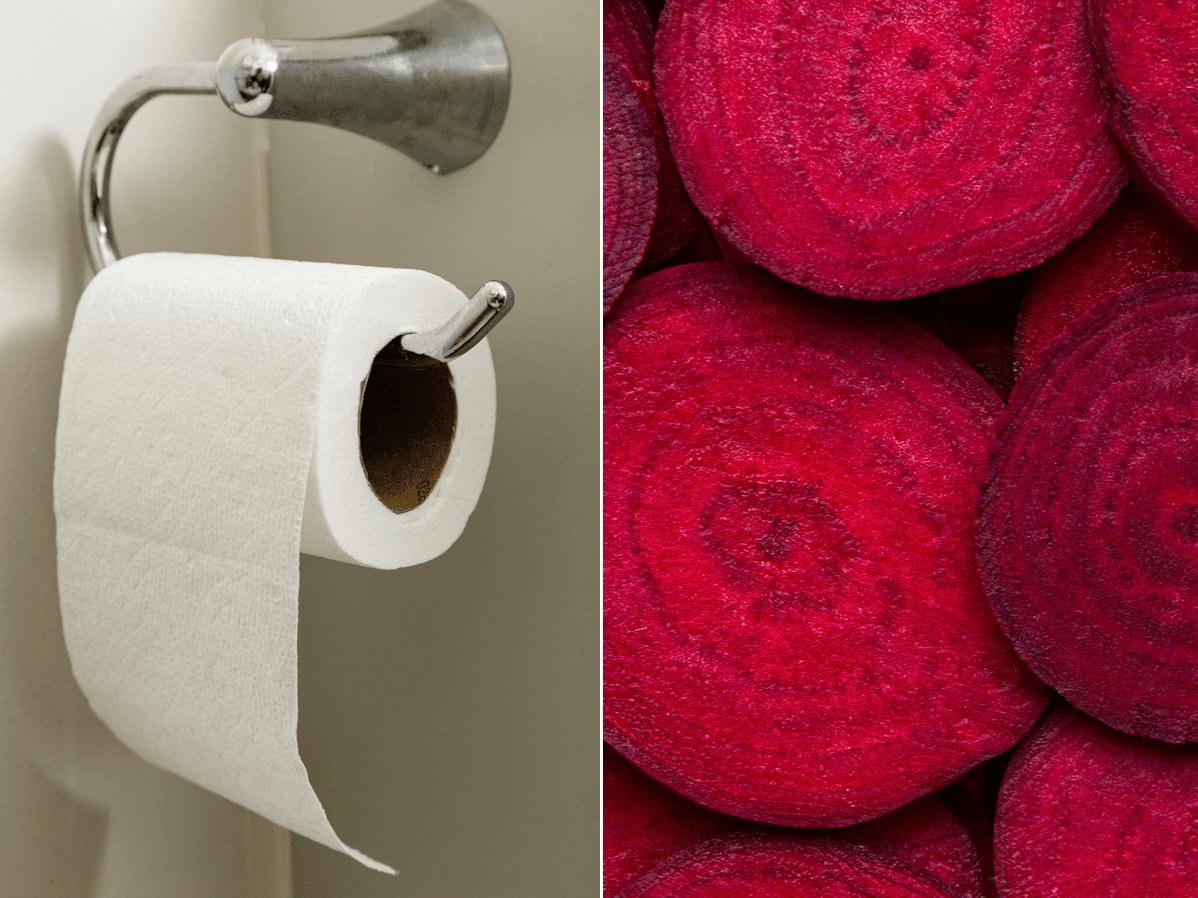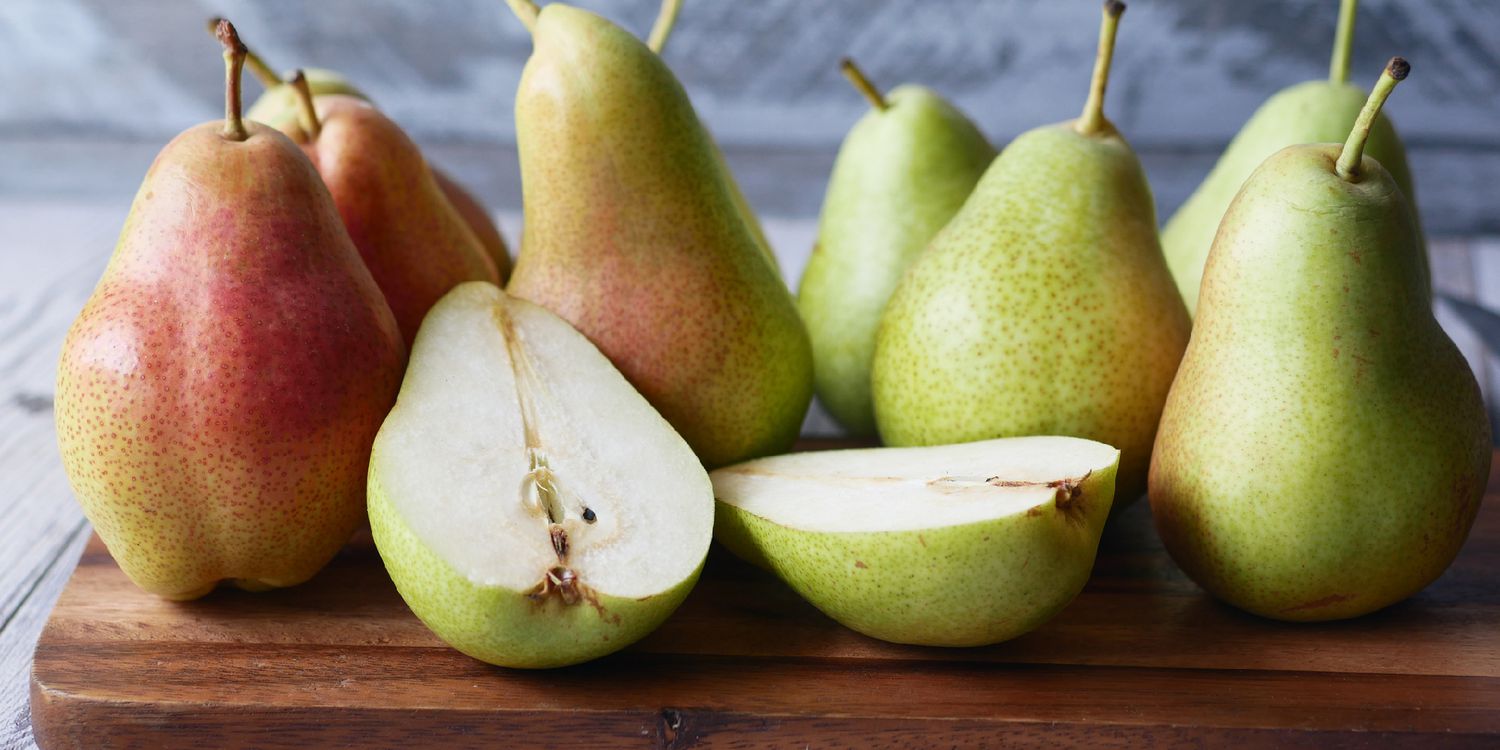Though red-tinged pee or poop is never a welcome sight in the toilet, it may not be cause for alarm if you’ve recently eaten beets. Here’s what you need to know about beeturia (and when it’s time to call your doctor):
Can Beets Make Your Pee (And Poop) Red or Pink?
Yes, eating beets or drinking beet juice can give your urine and/or your stool a slightly reddish or pink tinge. This phenomenon, called beeturia, is usually not cause for alarm. Some studies show it affects up to 14 percent of the beet-eating population. While occasional beeturia in and of itself is harmless, you should definitely consult a doctor if you’re experiencing discoloration every time you ingest the root vegetable. This could be a sign of underlying conditions. If you have discolored pee or poop more than a day or so after eating beets, call your doctor immediately — this could indicate bleeding, and should be examined ASAP.

What Causes Beeturia?
Betanin, a compound in beets, gives the veggie its vibrant red hue. Some bodies aren’t able to completely break down this compound during digestion. This can result in red-tinged urine or stool. Occasional beeturia is normal. However, if it happens often, it may be a sign of iron deficiency or low stomach acid.
Beeturia and Anemia
Anemia, or iron deficiency, occurs when you don’t have enough healthy blood cells to carry oxygen to your body’s tissues. This condition can affect your ability to absorb certain pigments. While beeturia can affect up to 14 percent of people, the rate is much higher in people who have anemia (up to 80 percent of iron deficient people experience beeturia).
Other signs and symptoms of anemia include:
- Unusual tiredness
- Unusually pale skin, gums, or inner eyelids
- Shortness of breath
- Dizziness
- Headaches
- Dry or damaged hair, skin, or fingernails
Consult your doctor if you’re concerned about iron deficiency. The condition can be diagnosed with a simple blood test. You can also eat iron-rich foods, like spinach and liver, to prevent anemia.
Beeturia and Low Stomach Acid
Beeturia can also indicate low stomach acid. Stomach acid helps your body metabolize vitamins, minerals, and other nutrients. When your acid levels are low, your body may not be able to break down betanin as it should.
Other signs and symptoms of low stomach acid include:
- Constipation
- Heartburn or acid reflux
- Gas and/or bloating
- Nausea
- Cramping
Talk to your doctor if you suspect you have low stomach acid.
Other Causes of Red or Pink Urine or Stool
Even if you suspect your red or pink urine or stool is a result of beeturia, you should consult your doctor if it happens often or continues days after you’ve eaten beets. Blood in stool or urine can indicate serious health conditions that need immediate diagnosis and treatment.
Health Benefits of Beets
While all this talk of beeturia isn’t exactly appetizing, there are plenty of reasons to eat beets. High in fiber, folate, vitamin C, iron, and potassium, the tasty root veggie packs a seriously nutritious punch. Here are just a few things beets may be able to do:
- Promote healthy digestion, thanks to high fiber content.
- Lower blood pressure and improve exercise capacity, thanks to high levels of nitric oxide.
- Promote weight loss or weight management, as beets have few calories compared to their rich nutrient content.
Beet Recipes

Incorporate more beets into your diet with one of these delicious recipes:
- Ukrainian Red Borscht Soup
- Easy Beet Hummus
- Pickled Beets
- Roasted Beet Salad
- Fettuccine with Creamy Roasted Beet Sauce
Explore our entire collection of Beet Recipes.




